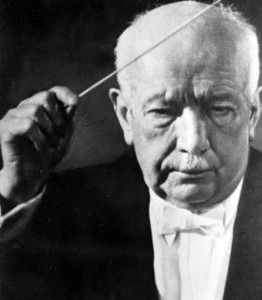 The idea that orchestration, the technique of employing instruments to portray any musical aspect, is an integral and creative aspect of the compositional art has only gradually been accepted.
The idea that orchestration, the technique of employing instruments to portray any musical aspect, is an integral and creative aspect of the compositional art has only gradually been accepted.
We still teach orchestration at University, but there is only so much one can actually learn. The basic facility to blend the timbres of individual instruments or orchestral sections into a unique and compelling universe of sound appears to rely on a good dose of natural aptitude. And some famous composers are clearly better than others. When it comes to handling the infinite sound possibilities of a large symphony orchestra, nobody can hold a candle to Richard Strauss. He wrote out full scores of enormous complexity and huge instrumental forces without relying on a piano score first, and all without revisions or corrections! And his scores always make perfect musical sense.
If we talk about the masters of orchestrations, we do have to mention Hector Berlioz. After all, his orchestration treatise first published in 1843 is still used to instruct aspiring composers today.
If there is good, there must also be bad. And in terms of orchestration it does not get much worse than Frederic Chopin. Supremely confident on the keyboard, the infinite possibilities of orchestral sound were never part of his musical universe.
A substantial number of well-meaning musicians and musicologist have bravely taken up arms in defense of Chopin’s orchestration. At the end of the day, however, trying to focus on the orchestral parts in his piano concertos will see you rushing for a triple espresso in no time.
Karlheinz Stockhausen: Helicopter String Quartet
Honorable mention in the worst orchestrator category must go to Karlheinz Stockhausen and his Helicopter String Quartet. Blending tremolos with the timbre and rhythms of the swirling rotor blades, “it relies on pointless effects, nightmarish difficulty and a general lack of reward for performers and listeners.”
